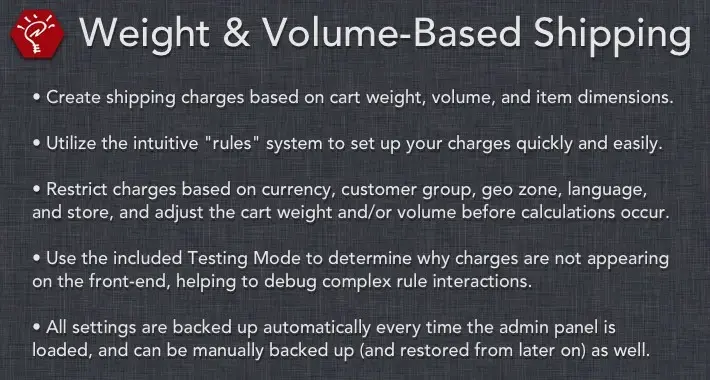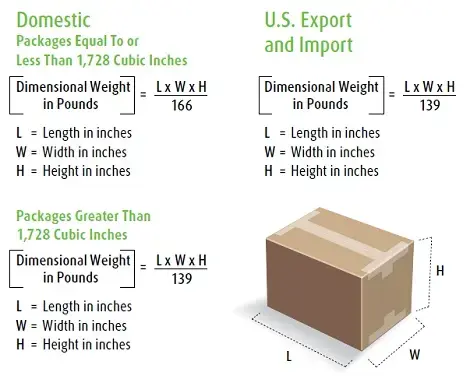
Navigating the Scales: Understanding Weight Conversion in International Shipping and Trade
In the intricate world of international shipping and trade, understanding and effectively managing weight conversions is crucial. As goods cross borders, they encounter various measurement systems, making weight conversion not just a matter of numbers, but a critical component of successful and efficient global trade.
The Importance of Accurate Weight Conversion
The accuracy of weight measurements directly impacts cost, compliance, and efficiency in international trade. Miscalculations can lead to significant financial losses, legal issues, and logistical nightmares. Therefore, businesses must ensure precise conversions between different weight units used globally.

Common Weight Units in International Trade
- Kilograms (kg) - The most widely used unit in international trade, kilograms are part of the metric system.
- Pounds (lbs) - Predominantly used in the United States, pounds are part of the imperial system.
- Tons and Metric Tons - Used for heavier loads, a ton (US) is different from a metric ton (1000 kg).
- Ounces (oz) - Often used for smaller, lighter items.
Check this out: The Role Of Probability Calculators In Statistics And Data Science | Using Probability Calculators In Gaming And Gambling Strategies
Conversion Essentials
Understanding the basic conversion factors is vital. Here are some key conversions:
- 1 kg = 2.20462 lbs
- 1 lb = 0.453592 kg
- 1 metric ton = 1000 kg
- 1 US ton = 2000 lbs
- 1 oz = 0.0283495 kg

Tools for Weight Conversion
Several tools and calculators are available online for quick and accurate weight conversion. The online weight converter tool is invaluable for businesses involved in international shipping, as they save time and reduce errors.
Weight Conversion in Shipping Documentation
Accurate weight documentation is mandatory for customs and regulatory compliance. Discrepancies can result in fines, delays, or seizure of goods. Shipping documents, like Bills of Lading and Commercial Invoices, must reflect accurate weight measurements.
Impact on Shipping Costs
Shipping costs are significantly influenced by the weight of the cargo. In air freight, chargeable weight is calculated based on actual weight or volumetric weight, whichever is higher. In sea freight, container weight limits must be adhered to, making accurate weight conversion essential for cost optimization.
Weight Conversion in Trade Agreements and Regulations
Different countries have specific regulations regarding weight measurements. For instance, the US still uses the imperial system, while most of the world uses the metric system. Understanding and complying with these requirements is vital for smooth international trade operations.
Challenges in Weight Conversion
The primary challenge is the human error factor in manual conversions. Inconsistent unit usage and calculation mistakes can lead to costly errors. Automated systems and stringent double-checking procedures can mitigate these risks.
Best Practices for Accurate Weight Conversion
- Use Reliable Conversion Tools: Always use accurate and updated conversion tools or software.
- Understand Local Regulations: Be aware of the measurement units preferred in each country you deal with.
- Double-Check Calculations: Always double-check conversions, especially in critical documents.
- Educate Your Team: Ensure that your team understands the importance of accurate weight measurement and conversion.
- Stay Updated: Keep abreast of any changes in measurement standards or regulations in countries you trade with.
Read More: The Ultimate Guide To Weight Conversion Using Weight Converter Tool | The Science Behind Temperature Conversion Understanding The Formulas
Conclusion
Mastering weight conversion in international shipping and trade is not just about getting the numbers right; it's about ensuring operational excellence, legal compliance, and financial accuracy. By understanding and implementing effective weight conversion practices, businesses can navigate the complexities of global trade with confidence and efficiency.
Free Tools: Free Volume Converter Tool Online | Free Binary to Hex Tool Online
Frequently Asked Questions
1. What are the most common weight units in international shipping?
The most common units are kilograms (kg) in the metric system and pounds (lbs) in the imperial system.
2. How do I convert kilograms to pounds for shipping purposes?
Multiply the number of kilograms by 2.20462 to convert to pounds.
3. What is the significance of understanding weight conversion in international trade?
Accurate weight conversion is crucial for logistics planning, cost estimation, and legal compliance in international trade.
4. Is there a standardized weight unit for international shipping?
While there's no single standard, kilograms are widely used in international shipping due to the global prevalence of the metric system.
5. How can errors in weight conversion impact international shipping?
Errors can lead to shipping delays, additional costs, and legal issues, especially if the cargo doesn't comply with weight regulations.
6. Are there tools available to help with weight conversion in shipping?
Yes, there are many online converters and shipping software that offer weight conversion tools.
7. How important is weight accuracy in international shipping?
Extremely important, as it affects shipping costs, fuel charges, and compliance with international shipping regulations.
8. Can weight conversion affect customs duties and taxes?
Yes, incorrect weight declaration can lead to incorrect duty and tax calculations, potentially leading to penalties.
9. What should I do if my shipping documents have a weight conversion error?
Correct the error as soon as possible and inform all relevant parties, including shipping companies and customs authorities.
10. Are there any weight limits for international shipping?
Yes, weight limits vary depending on the shipping company and the destination country's regulations. It's essential to check these limits before shipping.



